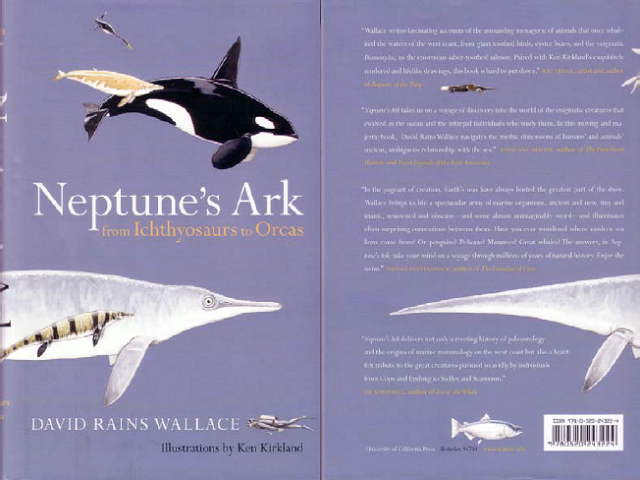Wallace, D.R. 2007. Neptune’s Ark, from Ichthyosaurs to Orcas - Berkeley, University of California Press
Abstract
Most aspects of palaeontology that receive attention in today’s media are topics concerning dinosaurs, hominids, or, if the find is really spectacular, the public may even be interested in the origins of tetrapods. But one of the richest stories of vertebrate evolution that we have at hand is that of marine vertebrates, in part because in many cases (but not all), they live in the ideal depositional environment. This said, in a random sample of vertebrate palaeontologists you would be more likely to find one with an interest in terrestrial animals like dinosaurs, than to find one focused on marine amniotes or fishes. But why? It is simply easier to study landbased animals because we are land-based ourselves. Marine animals are simply logistically harder to study, and for this reason we still know relatively very little about even modern marine animals, particularly open ocean taxa. It certainly is easier for most people to accept lack of knowledge about the open ocean than it is the land, and much of the oceans are obviously unexplored. I suppose it is easier to relate and wonder about animals walking or flying about us, rather than the seemingly distant sea. Perhaps it is this ‘out of sight, out of mind’ attitude that has caused it to take this long for a book about the evolution of marine amniotes and the history of their study to come about. David Rains Wallace’s ‘Neptune’s Ark’ fills in this gap in the public’s awareness of the richness of marine amniote evolution, and the historical record of the study of them. Read more...





